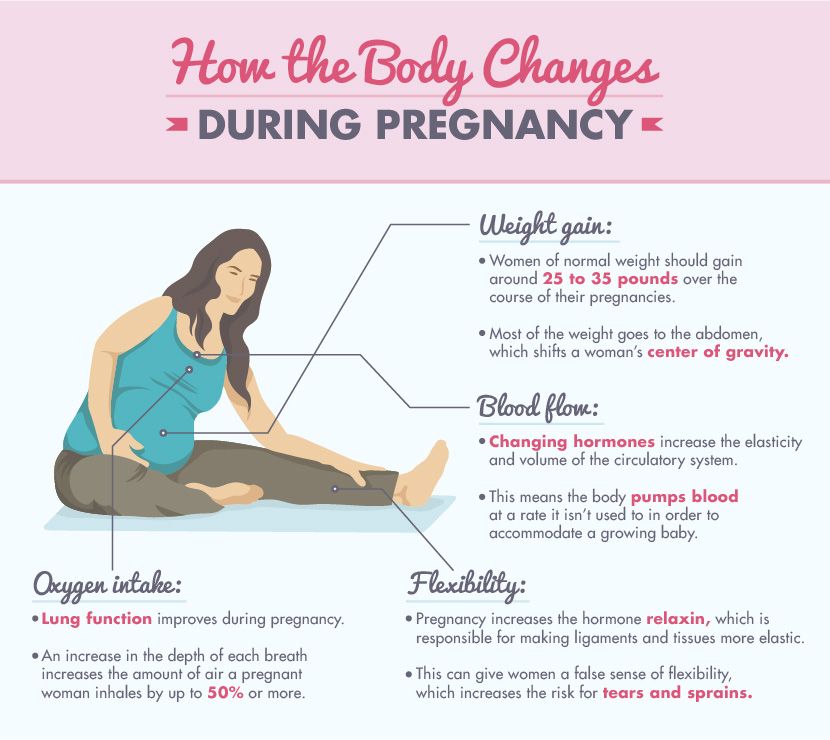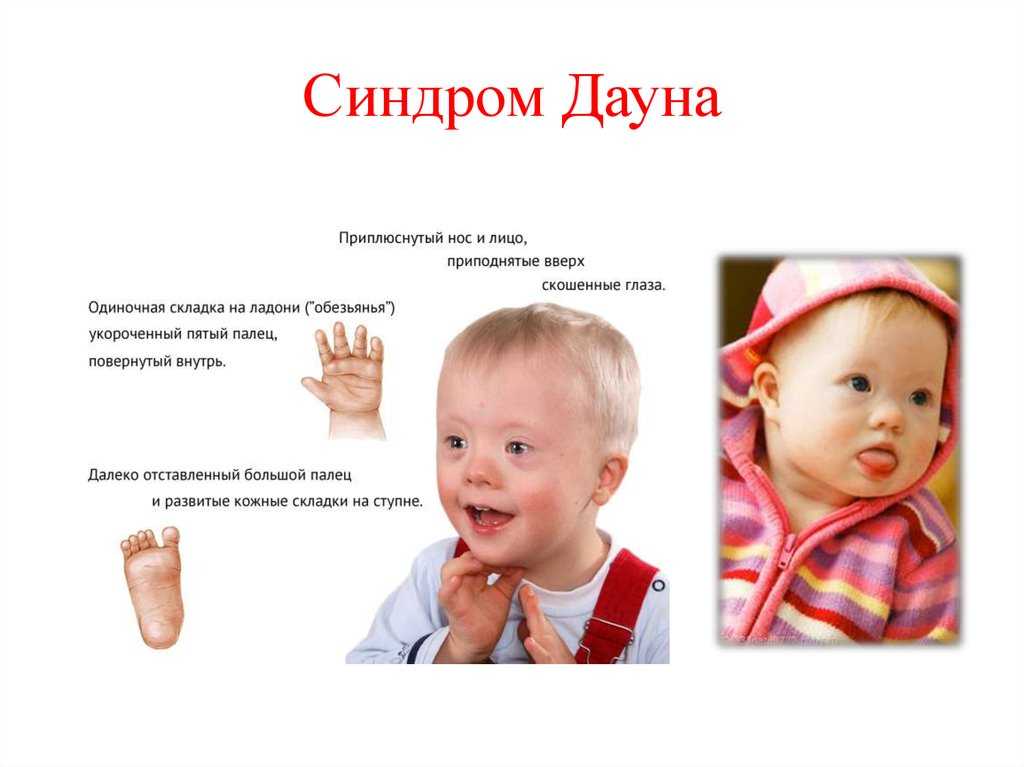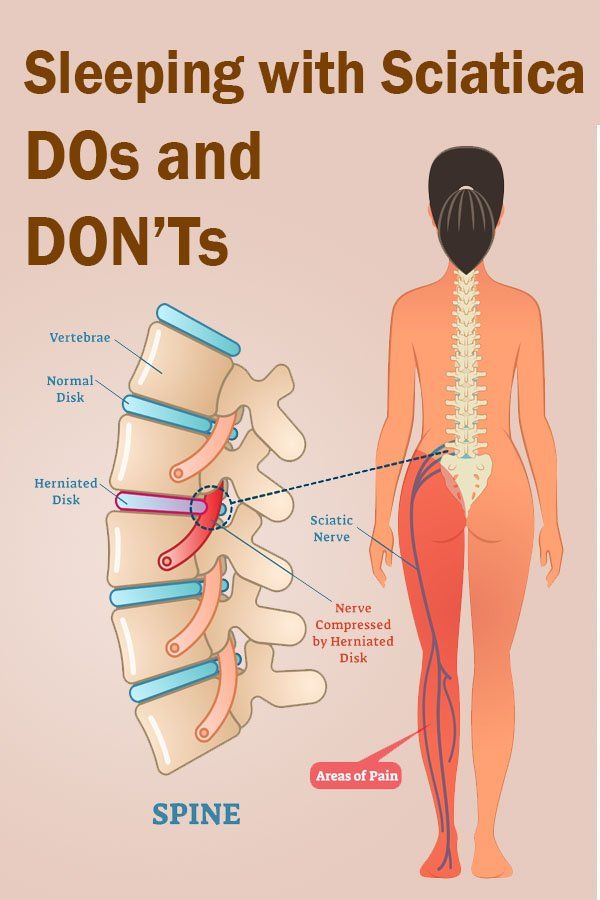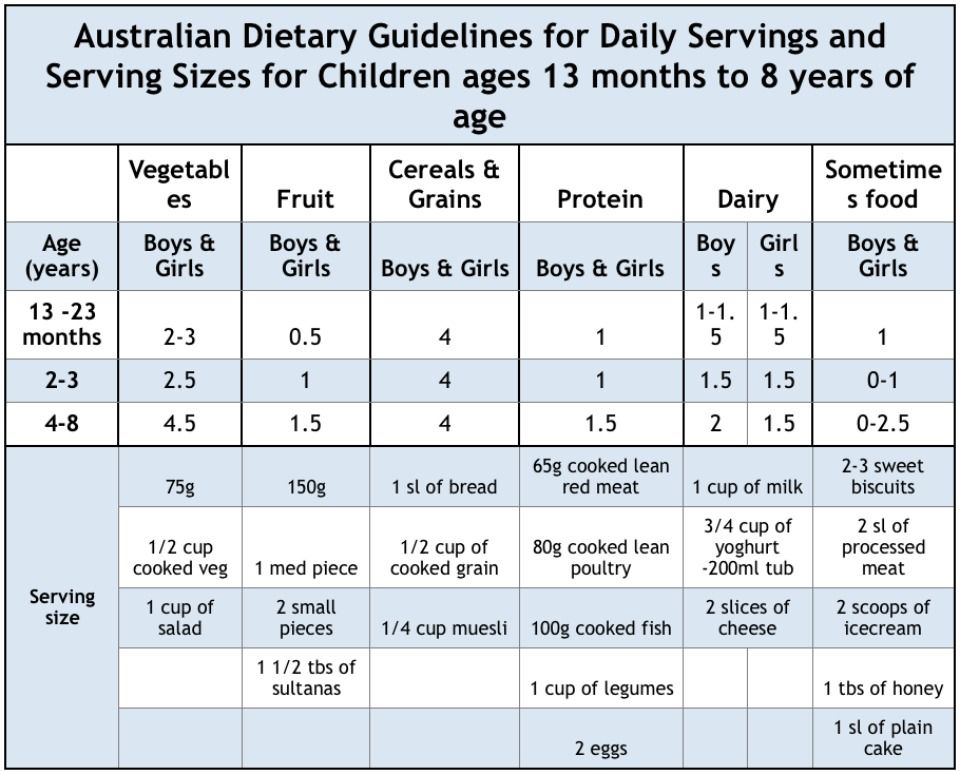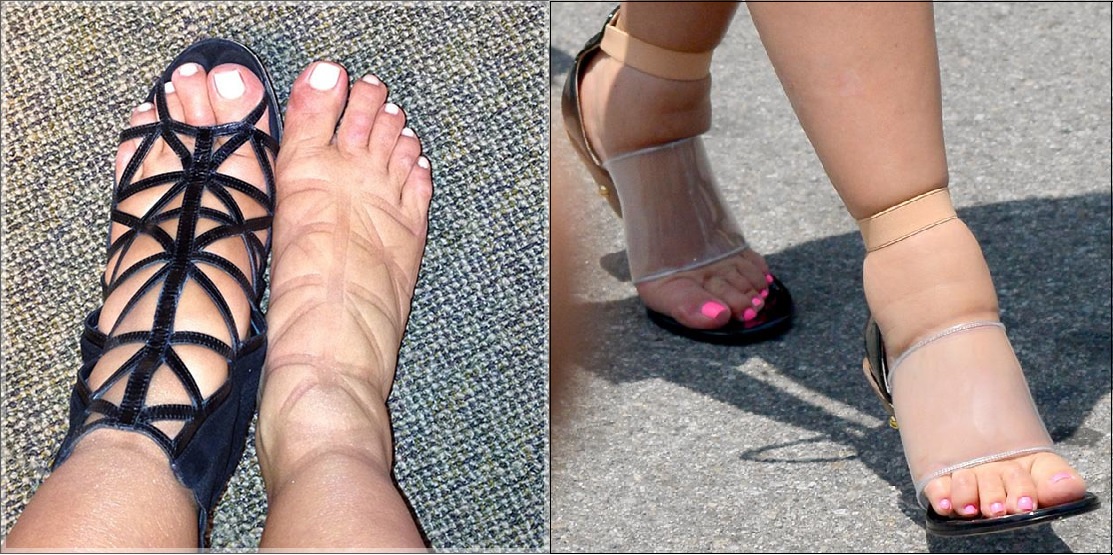Nosebleed 37 weeks pregnant
A nose bleed in pregnancy was a sign my baby and I were in danger
My story is a reminder you should never accept strange symptoms as just a part of pregnancy.
Photo: Courtesy of Krissy LePage
“You are very sick, and we need to deliver your baby.”
These were not the words I expected to hear when I went to the hospital at 37 weeks pregnant. Hours prior, I was sitting on my couch with my husband eating ice cream, sorting through baby gifts and enjoying the last few weeks of being pregnant.
But a nosebleed that happened earlier that day is what prompted me to go to the ER. When it happened in the morning, I thought nothing of it, but as the day went on, it began to bother me. I had had slightly high blood pressure throughout my pregnancy and had been monitoring it at home. That day, the readings were consistently getting higher.
Then, on a whim I took my temperature with a baby thermometer we had received as a shower gift. I was just testing out the thermometer, so imagine my surprise when it showed that I had a fever. I felt fine, but the nosebleed and fever were enough to make me worry. We threw together our bags, just in case, and went to the hospital. We didn’t call my mom because we thought they would send us home.
The hospital took me in right away, did some blood work, and then a few hours later I was wheeled upstairs to the labour and delivery floor where an OB stood in a doorway, backlit by harsh hospital lighting, and told me what was happening. She explained that I had HELLP syndrome and we needed to get the baby out right away because we were both in danger.
HELLP Syndrome is the rarest and most dangerous variant of preeclampsia. It stands for Hemolysis, Elevated Liver enzymes and Low Platelets and can be deadly for both mom and baby. Symptoms include high blood pressure, blurry vision, headaches that won’t go away, swelling, unusual bleeding or pain, and protein in the urine.
I didn’t have typical HELLP symptoms during my pregnancy. I never had lingering headaches, blurry vision, or protein in my urine. My high blood pressure was mostly chalked up to White Coat Syndrome (or medical anxiety) because it was never as high when I took a reading at home.
My feet did swell, but I told myself that it was just the heat and pregnancy. I was beginning to worry, but as a first time mom, I didn’t always know the right questions to ask. My OB made me stop working at 34 weeks because I work in a fast paced environment with lots of heavy lifting and bending. The doctor mentioned preeclampsia potentially becoming a concern, but because I had no other symptoms, I was just advised to rest as much as possible.
But now my blood work showed that my liver and kidneys were failing. The nosebleed was a sign of really high blood pressure. The pain I was having in the upper area of my chest that I just thought was my sons bum pushing against my body was actually my organs failing.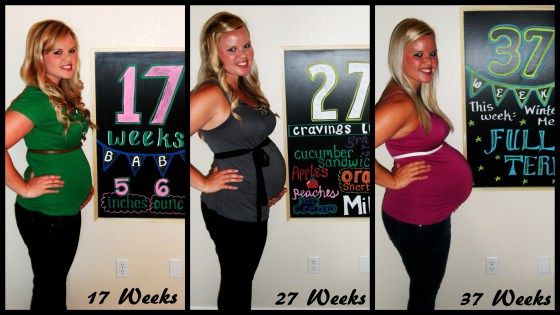 The placenta was at risk of detaching at any moment.
The placenta was at risk of detaching at any moment.
My platelets were so low I was unable to have an epidural.
They were afraid to perform a C-section because they thought I would bleed out and die.
HELLP is so rare that my hospital had to contact a hospital in Toronto because they weren’t sure how to help me. I had so many IVs that they had to look up how to connect them all. My mom got there and the OB took her outside the room to tell her what was going on, and still to this day, she won’t tell me what was said.
The details get blurry from here because they hooked me up to magnesium sulfate to prevent seizures, which makes you really drowsy. They started the induction right away and thanks to the magnesium sulfate I was able to somewhat rest. I was in and out of consciousness and barely remember the next twelve hours, although I do recall feeling very intense contractions and wishing I could have gotten that epidural.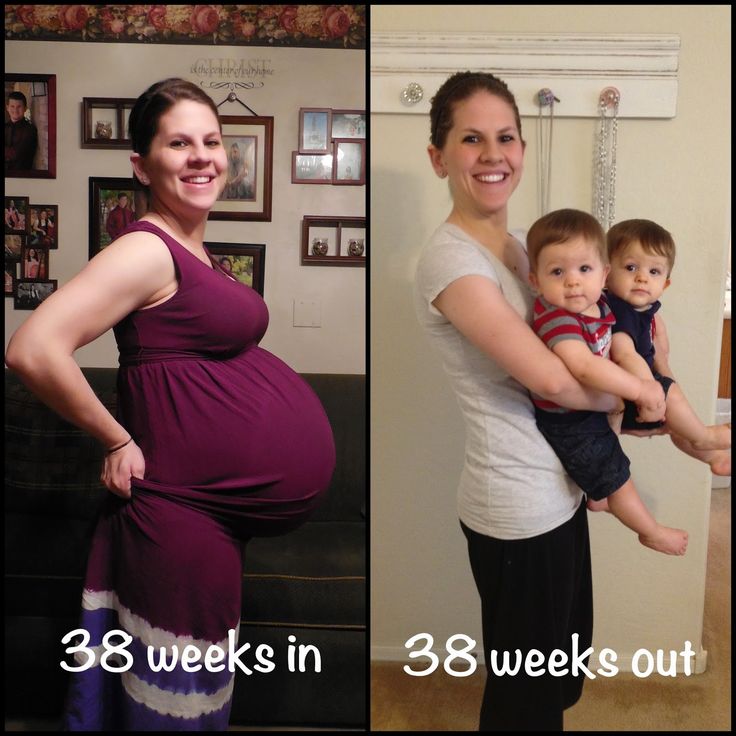
I also remember not caring about what happened to me. I just wanted our son to be okay.
The time to push came faster than I thought, but I was ready. I was determined to get him out as quickly and as safely as possible. The one thing that went right was that he was in a great position. After only a few pushes, our son was here and he was absolutely perfect. Hearing his first cry was the most beautiful sound I had ever heard. I still wasn’t out of the woods yet, but delivering the baby and placenta is typically the ‘cure’ for HELLP. That’s not always the case, but it was for me.
I began to get better right away, and didn’t have any lasting organ damage. I was up and walking around the next day. I got a platelet transfusion while in the hospital and stayed on the blood pressure medication for a few weeks after birth, but it was more of a precautionary measure.
Mentally, I struggled. I blamed myself and felt that I had done enough research and I should have known what was happening. I felt that if something had happened to the baby, it would have been my fault.
I felt that if something had happened to the baby, it would have been my fault.
In truth, no one knows for sure what causes HELLP, but research suggests that it has to do with the placenta. Nothing a mother does, or doesn’t do, can cause HELLP.
The one thing that soothed me was knowing that despite my son being born three weeks early, he was completely healthy. He didn’t need any special care. Despite his tumultuous birth, he was perfect.
I spent a lot of time feeling guilty for not realizing something bigger was going on, but we can’t know everything. All we can do is pay attention and advocate for ourselves if we think something is off. Ask for blood work. Ask for extra appointments. Don’t assume everything is a pregnancy symptom.
We went on to have surprise twins a few years later. I did get HELLP again with the twins, but thankfully, less severe. HELLP threatened my life, but I was one of the lucky ones and I will spend my life forever grateful to be here.
Stay in touch
Subscribe to Today's Parent's daily newsletter for our best parenting news, tips, essays and recipes.- Email*
- CAPTCHA
- Consent*
Yes, I would like to receive Today's Parent's newsletter. I understand I can unsubscribe at any time.**
FILED UNDER: Birth story first person Giving birth Preeclampsia
Nosebleeds during pregnancy | Pregnancy Birth and Baby
Nosebleeds during pregnancy | Pregnancy Birth and Baby beginning of content3-minute read
Listen
Nosebleeds during pregnancy are fairly common. Although they can be alarming, in most cases there's no need to worry and you should be able to treat a bleeding nose yourself.
Why are nosebleeds common during pregnancy?
During your first trimester the amount of blood circulating in your body increases and your heart works harder. This means that the lining of your nasal passage (inside your nose) also receives more blood. You have tiny blood vessels inside your nose so the increased blood volume can sometimes damage those blood vessels and cause them to burst, resulting in a nosebleed.
Changes in your hormones during pregnancy can also contribute to nosebleeds.
These changes can make your nose feel congested (stuffy) and it might get more blocked up than usual. Your gums may also feel swollen and may bleed.
A nosebleed may last for a few seconds or a few minutes, and can flow from one or both nostrils. The blood flow can be light or quite heavy. If a nosebleed happens at night, while you’re sleeping, you may wake up feeling the blood going down the back of your throat before you sit up. It will then come out of your nose.
Are nosebleeds during pregnancy a cause for concern?
Nosebleeds can give you a fright or be a nuisance, but as long as you don’t lose a lot of blood, they are generally nothing to be worried about. In most cases, a nosebleed won’t harm you or your baby.
How do I stop a nosebleed if I have one?
- Sitting or standing, keep your head upright. This reduces the pressure in the blood vessels inside your nose and will help to slow down the bleeding.
- Pinch the soft part of your nose, underneath the bony ridge, between your thumb and forefinger. Once you have done this, the two sides of your nose should be pressed together.
- Keep pinching, without releasing, for 10 minutes.
- If your nose is bleeding a lot, you may want to lean slightly forward and breathe through your mouth so the blood runs out of your nose, rather than down the back of your throat.
- Spit out any blood that is in your mouth.
- You may also want to suck an ice cube or put an icepack on the back of your neck or forehead, or the bony part of your nose.

- After 10 minutes, gently release your pinch to see if the bleeding has stopped.
- If your nose is still bleeding, try this procedure again for another 10 minutes.
How can I avoid a nose bleed?
If you are blowing your nose, do so gently and try to avoid large sneezes. You should also avoid picking your nose. You could be more likely to get nosebleeds in winter months when the air is dryer, so you may like to use a dehumidifier in your home to moisten the air.
If you’ve recently had a nosebleed:
- Sneeze with your mouth open.
- Try to avoid bending down or vigorously exercising for at least 12 hours afterwards.
- Avoid hitting your nose on anything.
When should I see a doctor?
Let your doctor know straight away if your nosebleed happens after bumping your head.
You should also contact your doctor if:
- you have high blood pressure
- you have taken the steps above and your nosebleed hasn’t stopped after 20 minutes
- you have trouble breathing through your mouth
- there seems to be a large amount of blood
- you are getting nosebleeds frequently
- you have swallowed a lot of blood and vomited
- you have a fever or chill
For more information, or to discuss any concerns you might have about nosebleeds, call Pregnancy, Birth and Baby on 1800 882 436.
Sources:
Healthy WA (Healthy WA - Nose bleeds), Mater Mothers Hospital (Pregnancy information for women and families), NHS Choices (Nosebleeds in pregnancy), Raising Children Network (15 weeks pregnant), St John Ambulance Australia (First aid tip: nosebleeds)Learn more here about the development and quality assurance of healthdirect content.
Last reviewed: June 2021
Back To Top
Need more information?
Nosebleeds - MyDr.com.au
What causes nosebleeds? How can I prevent them? What first aid measures can I use to stop a nosebleed? Find out here.
Read more on myDr website
Nosebleeds in children: what to do | Raising Children Network
Nosebleeds in children are very common.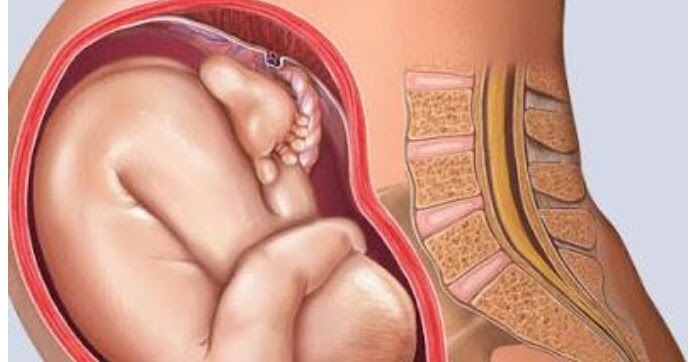 Nosebleed treatment starts with staying calm and applying pressure to the nose. Nosebleeds aren’t usually serious.
Nosebleed treatment starts with staying calm and applying pressure to the nose. Nosebleeds aren’t usually serious.
Read more on raisingchildren.net.au website
Nosebleeds - Better Health Channel
Bleeding from the nose is common in children and is usually not severe or serious.
Read more on Better Health Channel website
Nose bleeds
Nose bleeds can occur when the blood vessels or the lining or the nose become damaged.
Read more on WA Health website
Pale skin: babies, children & teens | Raising Children Network
Pale skin is usually nothing to worry about. But you might sometimes need to see your doctor if your child’s skin looks pale. This article explains.
This article explains.
Read more on raisingchildren.net.au website
Using your allergy nasal spray correctly - National Asthma Council Australia
Many people with asthma also use allergy nasal sprays for their hay fever. Using your nasal spray properly is important. With the right tech
Read more on National Asthma Council Australia website
Bruises & bruising in children & teens | Raising Children Network
If your child falls over or bumps himself, he might get bruises. Bruising is when blood vessels are damaged and bleed into the skin. First aid can help.
Read more on raisingchildren.net.au website
Pregnancy health problems & complications | Raising Children Network
Many pregnancy health problems are mild, but always call your doctor if you’re worried about symptoms. A healthy lifestyle can help you avoid health problems.
A healthy lifestyle can help you avoid health problems.
Read more on raisingchildren.net.au website
Childhood acute lymphoblastic leukaemia (ALL) - Leukaemia Foundation
Childhood acute lymphoblastic leukaemia (ALL) Listen What is childhood acute lymphoblastic leukaemia? Acute lymphoblastic leukaemia (ALL) is a type of cancer that affects immature lymphocytes developing in the bone marrow
Read more on Leukaemia Foundation website
Childhood acute myeloid leukaemia (AML) - Leukaemia Foundation
Childhood acute myeloid leukaemia (AML) Listen What is childhood AML? Acute myeloid leukaemia (AML) is a type of cancer that affects the blood and bone marrow
Read more on Leukaemia Foundation website
Disclaimer
Pregnancy, Birth and Baby is not responsible for the content and advertising on the external website you are now entering.
Need further advice or guidance from our maternal child health nurses?
1800 882 436
Video call
- Contact us
- About us
- A-Z topics
- Symptom Checker
- Service Finder
- Linking to us
- Information partners
- Terms of use
- Privacy
Pregnancy, Birth and Baby is funded by the Australian Government and operated by Healthdirect Australia.
Pregnancy, Birth and Baby is provided on behalf of the Department of Health
Pregnancy, Birth and Baby’s information and advice are developed and managed within a rigorous clinical governance framework. This website is certified by the Health On The Net (HON) foundation, the standard for trustworthy health information.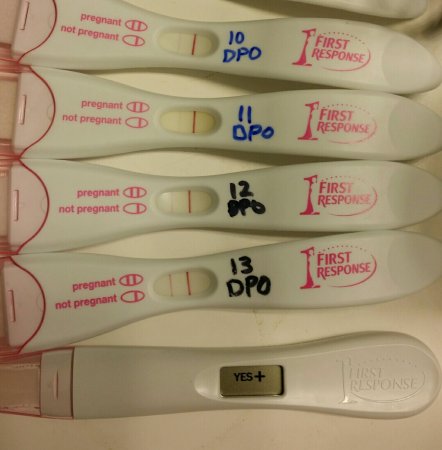
This site is protected by reCAPTCHA and the Google Privacy Policy and Terms of Service apply.
This information is for your general information and use only and is not intended to be used as medical advice and should not be used to diagnose, treat, cure or prevent any medical condition, nor should it be used for therapeutic purposes.
The information is not a substitute for independent professional advice and should not be used as an alternative to professional health care. If you have a particular medical problem, please consult a healthcare professional.
Except as permitted under the Copyright Act 1968, this publication or any part of it may not be reproduced, altered, adapted, stored and/or distributed in any form or by any means without the prior written permission of Healthdirect Australia.
Support this browser is being discontinued for Pregnancy, Birth and Baby
Support for this browser is being discontinued for this site
- Internet Explorer 11 and lower
We currently support Microsoft Edge, Chrome, Firefox and Safari. For more information, please visit the links below:
For more information, please visit the links below:
- Chrome by Google
- Firefox by Mozilla
- Microsoft Edge
- Safari by Apple
You are welcome to continue browsing this site with this browser. Some features, tools or interaction may not work correctly.
Nosebleed at 37 weeks pregnant. When blowing nose, blood from the nose during pregnancy; reasons
Pregnancy for a woman is a normal physiological process, which results in external and internal changes in the female body. During this period, hormonal changes occur, as a result of which the functioning of many systems of the female body, including the cardiovascular system, changes significantly. In particular, blood flow increases, the permeability and fragility of blood vessels increase, which often leads to epistaxis - nosebleeds.
The human nose performs important functions, including moistening the inhaled air masses, warming them and cleaning them from dust.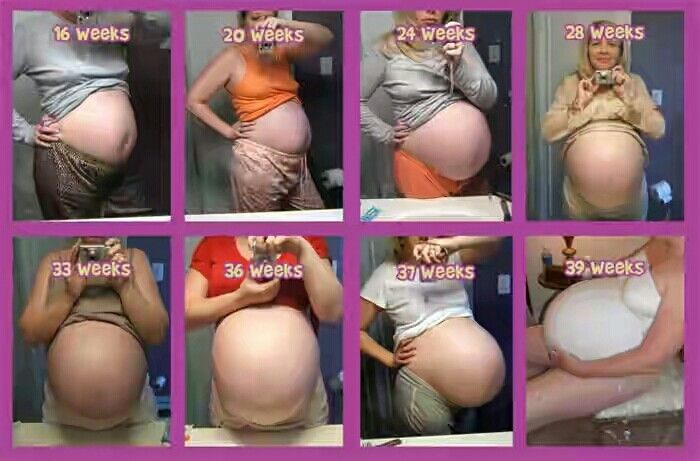 In addition, the nose performs olfactory functions, differentiating various odors. The mucous membrane of the nose is characterized by increased blood supply, which is carried out from the main arteries through an extensive network of capillaries.
In addition, the nose performs olfactory functions, differentiating various odors. The mucous membrane of the nose is characterized by increased blood supply, which is carried out from the main arteries through an extensive network of capillaries.
Nosebleeds or epistaxis is a fairly common pathological condition and is a symptom of many diseases. Often it occurs in women during pregnancy, when, against the background of an increase in body weight, the development of the placenta and fetus, there is an increase in blood flow in the vessels.
Sinus bleeding may be mild and infrequent and therefore usually not serious or cause serious concern by the attending physician. However, quite often they occur in the case of the development of pathology and are a sign of a serious illness, which, ultimately, can lead to serious consequences. What are the causes of nosebleeds in women that occur during pregnancy?
Hormonal changes
During pregnancy, against the background of an increase in female sex hormones - progesterone and estrogen, there is a change in the work of many systems, including the cardiovascular system.
Due to the increase in blood flow in the vessels and arteries, capillaries are filled, as a result of which they break, and some blood flows out of the sinuses. The rupture of the vessels contributes to the drying of the nasal mucosa, as a result of which the walls become thinner, brittle, and even a light load leads to bleeding.
Lack of vitamin K and calcium
During pregnancy, a woman's body gives a significant part of vitamins and microelements to the developing fetus, and the replenishment of these nutrients and essential substances is much slower. As a result, the expectant mother may experience a deficiency of vitamins, which affects the state of health.
In particular , it has been proven that it is the lack of calcium and vitamin K that increases the permeability and fragility of blood vessels , which leads to nosebleeds. To compensate for the deficiency of vitamins and trace elements, a pregnant woman is recommended to take multivitamin complexes and preparations containing calcium.
Injuries of the nose
Nosebleeds are caused by various congenital or past injuries of the nose, including deviated septum, displaced cartilage and other pathologies. In these cases, you should contact the ENT doctor, who, after the examination, will advise and, if necessary, prescribe the appropriate treatment.
Hyperthermia - elevated temperature
The development of inflammatory or infectious diseases, accompanied by a persistent increase in temperature, negatively affects the functioning of the cardiovascular system, as a result of which the blood flow is disturbed, the permeability and fragility of blood vessels increases, and nosebleeds occur.
Arterial hypertension
An increase in blood pressure and the presence of protein in the urine (proteinuria) are symptoms of developing preeclampsia - late toxicosis that occurs in many women. This leads to circulatory disorders, and as a consequence to the pre-eclamptic and eclamptic state.
A characteristic manifestation of this pathology are minor nosebleeds, headaches and "flies" before the eyes. Arterial hypertension is considered a dangerous condition for a pregnant woman, as it leads to fetal hypoxia and death.
If you bleed frequently during pregnancy?
When nosebleeds appear, do not panic, but determine the degree of bleeding, the amount of blood released and immediately consult a doctor. Based on an external examination, rhinoscopy (examination of the sinuses), pharyngoscopy (examination of the throat and larynx), the doctor determines the type of bleeding - “anterior” or “rear”, the degree of danger of this pathology.
Usually, bleeding from anterior bleeding is minor and does not pose a threat to the mother or fetus. If nosebleeds occur often enough and are accompanied by profuse blood loss, they pose a real threat to the health of the expectant mother. And if they are not associated with an increase in blood pressure, then they may indicate problems with blood clotting.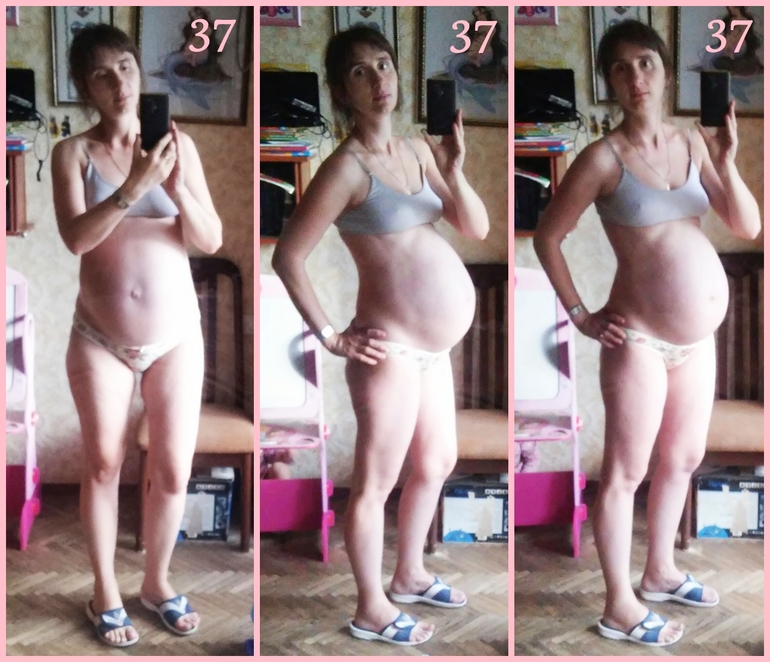
To do this, the doctor will offer to take a blood clotting test, and depending on the results of the test, he will choose the treatment tactics. In the absence of a pathological process in the body, a complex of vitamins and minerals is usually prescribed, as well as drugs that help strengthen the walls of blood vessels.
If a pathology is detected, a qualified consultation with a hematologist will be required, who will prescribe an additional examination. If frequent bleeding is caused precisely by an abrupt increase in pressure, then it is necessary to take drugs that normalize blood pressure.
Pregnancy Nosebleed First Aid
Normally moderate nosebleeds can be managed at home. For this you need:
- seat the pregnant woman in a comfortable position;
- tilt head forward;
- open the window for fresh air;
- put a swab with ice on the bridge of the nose;
- close the nostril with your finger and hold for 8-10 minutes.
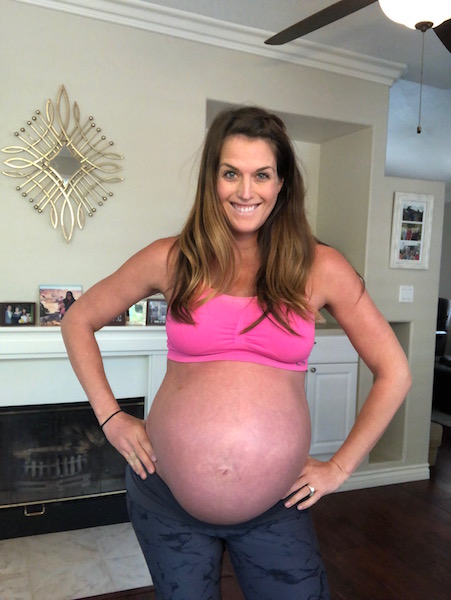
In case of heavy bleeding, it is necessary to moisten a cotton swab with hydrogen peroxide and apply it to the bleeding nostril, it is strictly forbidden to blow your nose and tilt your head back. You should not take a horizontal position, as this can lead to blood entering the stomach, nausea and vomiting.
Prevention
As a preventive measure, you should:
- drink enough liquid;
- regularly ventilate the room and humidify the air;
- to be outdoors every day, regardless of the weather;
- regular visits to the doctor and timely treatment of diseases;
- , if necessary, moisten the nasal mucosa with special means: sprays, sea water, petroleum jelly.
It should be remembered that this ailment is temporary, and with the birth of the baby, it will go away on its own.
Waiting for the birth of a baby is a wonderful period in a woman's life, filled with joy, tenderness and care for herself and her unborn child. During this period, health problems are especially acute. And the slightest deviation from the norm can scare the expectant mother, and unnecessary excitement at this time is contraindicated.
During this period, health problems are especially acute. And the slightest deviation from the norm can scare the expectant mother, and unnecessary excitement at this time is contraindicated.
Therefore, when there is blood from the nose during pregnancy, it is imperative to find out whether this phenomenon is dangerous, and what threatens the mother and her unborn baby.
You can immediately see that there is no particular reason to panic. During the period of gestation, a significant restructuring of the woman's body systems takes place. Understanding what's going on will help determine why pregnant noses bleed. An increase in the amount of female hormones accelerates the filling of blood vessels located in the nasal cavity. The heart and blood vessels are overloaded, which increases blood flow.
Based on these reasons alone, one can understand why women have nosebleeds during pregnancy, the third trimester is the most likely time for its occurrence. During this period, the body of the expectant mother is most susceptible to changes and is actively preparing for childbirth.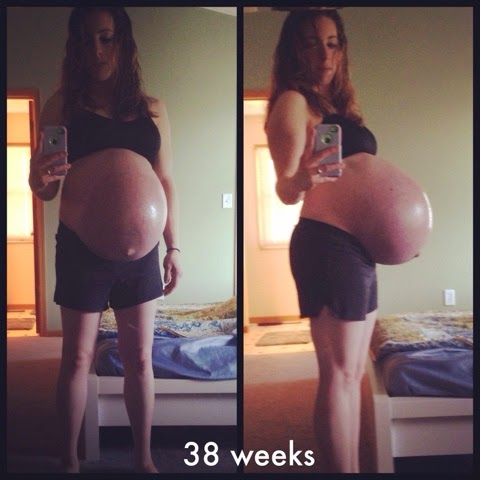 Pregnancy is a period when you need to be extremely careful about your health. Other, more serious factors that cause unpleasant symptoms must be excluded by contacting a doctor.
Pregnancy is a period when you need to be extremely careful about your health. Other, more serious factors that cause unpleasant symptoms must be excluded by contacting a doctor.
In addition to hormonal changes and vascular problems, the obvious causes of nosebleeds during pregnancy include:
- high blood pressure (arterial) - the condition itself is dangerous for the fetus, observation in a hospital is necessary;
- lack of vitamin K and calcium leads to thinning of blood vessels;
- violation of the process of coagulation in the blood;
- change in the shape of the septum in the nose, prolonged coryza;
- elevated temperature, kept for a long time, leads to changes in the capillaries.
A nosebleed is sometimes a sign of the onset of pregnancy, when all the life-support systems in the body of a pregnant woman are rebuilt to carry the fetus. Sometimes a nose bleeds just by blowing your nose. The pressure that forms in the vessels increases rapidly, and if they are weak, bleeding may occur.
At the slightest sign of a nosebleed during pregnancy, you need to take some urgent measures and know what manipulations are prohibited. You can not sharply throw your head back, as blood pressure will increase, it is not recommended to lie down, blood can get into the throat and then into the stomach. You also don't need to blow your nose too hard.
Urgent measures are as follows.
- Let air into the room - open the window wider, loosen the collar of the clothes.
- Sit down and tilt your head slightly forward to let the blood flow freely from your nose.
- Place an ice cube or handkerchief soaked in ice water on the bridge of the nose. Cold is also effectively applied to the back of the head.
- Apply a swab pre-moistened with hydrogen peroxide to the nostril.
- Pinch the wing of the nose with your finger. This method is suitable for public places, but at home it is better to let the blood flow freely.
- After the blood has stopped, clean and moisten the nostrils.
 Apply ordinary water, peroxide, vegetable oil.
Apply ordinary water, peroxide, vegetable oil.
If the nosebleed during pregnancy does not stop for more than 15 minutes, it is time to call a doctor.
When there is blood from the nose during pregnancy, expectant mothers immediately have thoughts on how to get rid of it. Treatment involves eliminating the causes of nosebleeds. Hypertension should not be ignored, high blood pressure is generally dangerous for the normal course of the process of bearing a child.
Nosebleeds during pregnancy may be due to preeclampsia (edema, high blood pressure), usually the third trimester is the period for the onset of this disease. During the period of bearing a child, poor blood clotting is sometimes detected, so it can come from the nose. Usually, the doctor will order a blood test to identify this problem and further medication.
If the cause of bleeding in a pregnant woman is a runny nose, then rather, it is necessary to treat a cold or a viral disease. It is necessary to remember that the attending physician should prescribe medications, since many drugs have contraindications for expectant mothers.
It is necessary to remember that the attending physician should prescribe medications, since many drugs have contraindications for expectant mothers.
In case of vascular thinning, vitamins are prescribed - for example, Calcemin, Ascorutin, Aevit. Especially the lack of vitamins is typical for the second trimester, nosebleeds during pregnancy for this period are quite common.
Nosebleeds are not uncommon and mostly harmless, not only during the third trimester, but also in the early stages of childbearing. Important for women are preventive measures to prevent nosebleeds during pregnancy. These include:
- taking vitamins throughout pregnancy will reduce the chance of nosebleeds;
- air humidification, modern devices for creating a comfortable atmosphere will help in this;
- drinking plain water, tea, legal juices;
- walks in places filled with clean air;
- moisturizing the nasal mucosa - with special nourishing creams, mineral water, etc.

- exclusion of overdrying of the mucous membrane in the nose - you should not get carried away, if possible, with sprays;
- avoidance of smoky and unventilated areas;
- exclusion from the menu of salty, fried, smoked, this leads to increased pressure and fluid retention in the body.
Undoubtedly, pregnancy is a short period of a woman's life when she must carefully monitor her condition. And if suddenly blood came out of the nose, you should not pay attention to it at all.
This condition may be the cause of a simple restructuring of the body to new conditions, or it may signal more serious problems.
For the peace of mind of a pregnant woman, it is better to know that if blood comes from the nose, then this may indicate an increase in its amount in the body, which in itself is a positive factor for the normal course of pregnancy. In any case, it is better to once again turn to medical diagnostics in order to exclude diseases that cause this problem.
During pregnancy, a woman's body is exposed to an increased load, because it must ensure not only its own life, but also the life of the fetus. The most famous and common problem during this period is toxicosis, but few people know about nosebleeds. This is not surprising - after all, the respiratory tract is not at all part of the body's reproductive system, and it is difficult to associate such a symptom with pregnancy.
Meanwhile, nosebleeds in pregnant women can be quite common. For some doctors, nosebleeds may even be one of the first signs of a patient's "interesting situation". And many pregnant women experience such an unpleasant symptom literally every day. Is this the norm?
Causes
Why can blood come out of the nose during pregnancy? The fact is that with the development of the fetus, the volume of blood circulating in the body of a woman increases, but the vascular system retains its previous dimensions. Accordingly, the blood expands the vessels, increasing blood pressure. The vessels of the nose are the weakest, and during pregnancy they become even more fragile. This is also facilitated by a change in the hormonal background - an abundance of female hormones softens the mucous membranes of the whole organism.
The vessels of the nose are the weakest, and during pregnancy they become even more fragile. This is also facilitated by a change in the hormonal background - an abundance of female hormones softens the mucous membranes of the whole organism.
The capillaries of the nose are located very close to the surface and the blood easily breaks them with its pressure. Immediately after this, bleeding begins.
How alarming is this symptom?
During pregnancy, you should listen very sensitively to any signals from your own body. Any change in the state of health can be a harbinger of formidable disorders. Blood coming from the nose during pregnancy, as a rule, signals only a slight increase in pressure. However, if a woman initially suffers from hypertension, she should definitely consult a doctor. After all, the blood strongly presses also on the vessels of the uterus (and not just the nose), which can even provoke a miscarriage.
For more accurate self-diagnosis during pregnancy, you should pay attention to other changes in well-being, because with an increase in pressure, not only does the nose bleed, but also dizziness, weakness and darkening of the eyes appear. Mild nosebleeds during pregnancy are not particularly dangerous in themselves unless there are other signs .
Mild nosebleeds during pregnancy are not particularly dangerous in themselves unless there are other signs .
How to act
If a woman is in a public place and does not want to draw attention to herself, you can simply press a handkerchief, napkin to your nose, or pinch your nostril with your fingers for a while. This time is enough to go to the toilet or any secluded place. If the pregnant woman is at home, she should tilt her head down to allow the blood to flow out and not in. When the flow dries up, you need to carefully rinse your nose with running water using ordinary cotton swabs or hydrogen peroxide.
If the dried blood is not completely removed, you can periodically lubricate the nasal cavity with medicated oil - for example, sea buckthorn or calendula oil. This will not only remove the effects of bleeding, but also heal broken capillaries. Another good way to quickly stop bleeding is exposure to cold - the head is tilted down, and ice wrapped in a cloth or a cold spoon is applied to the bridge of the nose.
Prevention
A pregnant woman should always tell her doctor about any health problems, especially hypertension. To increase the elasticity of blood vessels and their resistance, vitamin C or the drug ascorutin is often prescribed.
Expectant mother should not overexert herself (be nervous, lift weights, get very tired) and work in stressful conditions. All these factors contribute to high blood pressure and can put the baby at risk.
If nosebleeds are mild, but they bother you quite often, this is also a reason for an unscheduled visit to the hospital. The doctor must definitely check what is their cause.
Nosebleeds are not uncommon during pregnancy. This phenomenon can be provoked by changes in blood pressure, hormonal failure and changes in vascular tone. What threatens this condition to a woman and her baby? How to stop nosebleeds in pregnant women?
Causes of epistaxis
Anyone can get a nosebleed, and a pregnant woman is no exception.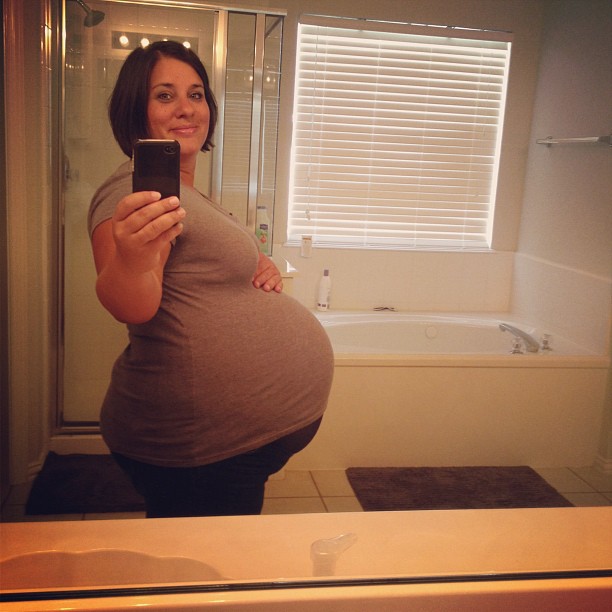 Why does nosebleed occur?
Why does nosebleed occur?
- Hormonal changes . Under the influence of progesterone, not only the uterus and organs of the reproductive system change. The influence of an important female hormone extends to the mucous membranes of all other organs, including the nasal cavity. Under the influence of progesterone, the nasal mucosa swells and becomes loose. Nose stuffy; runny nose appears. A pregnant woman, unable to endure nasal congestion, takes vasoconstrictor drops out of the closet - and thereby further damages the nasal mucosa. Fragile capillaries break, and bleeding occurs, which frightens many women in an interesting position.
- Arterial hypertension . An increase in blood pressure can cause bleeding from the nasal passages. In this condition, the appearance of blood is accompanied by severe headache, weakness, tinnitus. With high blood pressure figures, short-term loss of vision and convulsions are possible.
- Vitamin deficiency .
 In the first trimester of pregnancy, the cause of vitamin deficiency can be ordinary toxicosis. Constant nausea and vomiting lead to the leaching of nutrients from the body of the expectant mother. Lack of vitamins K, C and calcium increase the fragility of capillaries and provoke the development of bleeding. The same factor explains bleeding gums, which often occurs in women in early pregnancy. In the later stages, a pregnant woman is also not immune from a lack of important vitamins and minerals.
In the first trimester of pregnancy, the cause of vitamin deficiency can be ordinary toxicosis. Constant nausea and vomiting lead to the leaching of nutrients from the body of the expectant mother. Lack of vitamins K, C and calcium increase the fragility of capillaries and provoke the development of bleeding. The same factor explains bleeding gums, which often occurs in women in early pregnancy. In the later stages, a pregnant woman is also not immune from a lack of important vitamins and minerals. - Injuries of the nasal passages . The delicate mucous membrane of the nasal passages becomes especially vulnerable during pregnancy. The slightest damage during this period can lead to the development of nosebleeds. The reason for this condition can even be a routine examination by an ENT doctor, which is carried out in all women in the first half of pregnancy.
- Dryness of the nasal mucosa . This problem often occurs with influenza and SARS. The persistent swelling and congestion of the nose caused by a viral infection leads to drying of the nasal mucosa.
 Too dry air indoors or outdoors can also provoke nosebleeds.
Too dry air indoors or outdoors can also provoke nosebleeds. - Pathology of the blood coagulation system . Regular nosebleeds may be associated with disorders of the hemostasis system. Diseases of the blood coagulation system, as a rule, exist even before pregnancy, and many women are aware of their pathology. A similar disease can also be indicated by the rapid appearance of bruises at the slightest bruise and the prolonged healing of cuts. An accurate diagnosis can be made by a hemostasiologist after a thorough examination of the patient.
What should I do if my nose bleeds?
Don't be afraid of nosebleeds. In most cases, this condition does not pose any danger to the expectant mother and her baby. The following recommendations will help stop the bleeding from the nose:
- Open a window in the room or ask someone nearby to do so.
- Loosen neck and chest from tight clothing. Remove the scarf and handkerchief, unbutton the top buttons of the shirt.
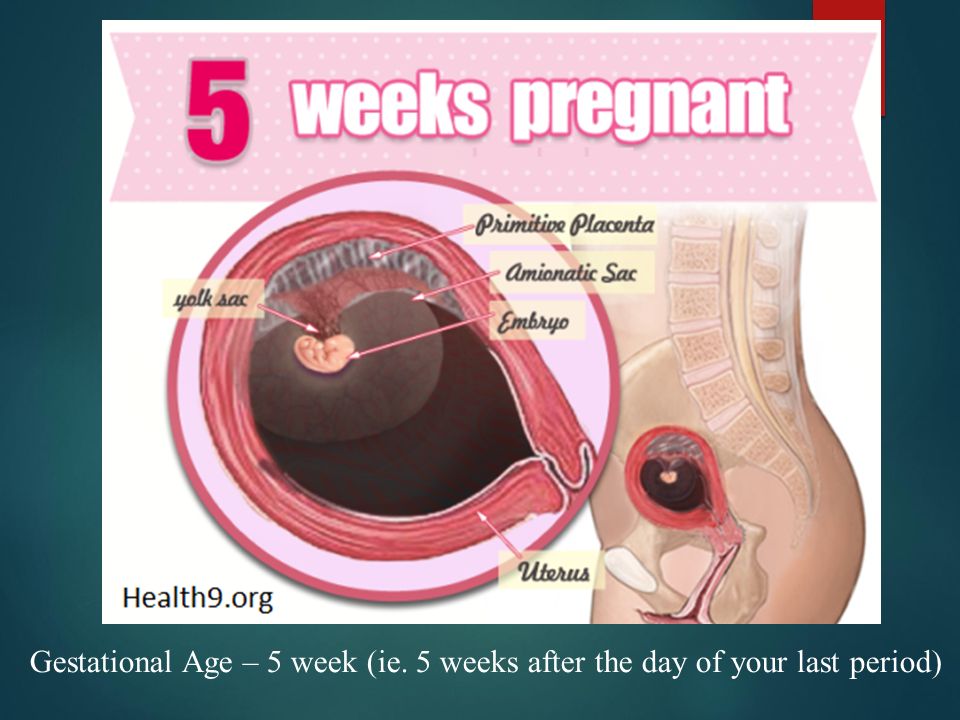
- Sit comfortably in an armchair or sofa. It is best to stay upright. Do not lie on your back with nosebleeds!
- Apply a cold compress to the nose (gauze or a regular towel soaked in cold water will do).
- Lean forward slightly to help drain blood clots from your nasal passages.
- After the bleeding stops, wash your face and clear the nasal passages of any blood residue.
What should not be done for nosebleeds?
- Tilt your head back (risk of swallowing blood and stopping breathing).
- Lie down on your back.
- Blow your nose when bleeding.
Most nosebleeds stop within five minutes. If the bleeding does not stop for too long, you can apply a cotton or gauze swab dipped in ordinary hydrogen peroxide to the nose. It is not necessary to call a doctor in this case. A single appearance of blood from the nose does not indicate the development of any serious pathology and does not require any treatment.
After the bleeding has stopped, gently clear the nasal passages of blood clots. Lubricate the walls of the nose with petroleum jelly or sea buckthorn oil to speed up the healing of the mucous membrane. Such a measure will restore damaged nasal capillaries and prevent re-bleeding.
When should I see a doctor?
- Nosebleed for more than 10 minutes.
- Bleeding increases with time.
- Bleeding occurs against the background of severe weakness, dizziness, loss of consciousness, convulsions.
- The appearance of blood from the nose is combined with a strong increase in blood pressure.
- Blood from the nose is accompanied by bleeding of other localization.
- Nosebleeds recur repeatedly.
In any of these situations, see a doctor immediately. The best thing to do is to call an ambulance at home.
In the hospital, nosebleeds are stopped with gauze swabs. Turundas, impregnated with a special agent, are placed in the nasal cavity and left for several hours. Medicinal impregnation of tampons is changed every 12 hours. Until the bleeding stops completely, a pregnant woman should be in the hospital under the supervision of doctors.
Medicinal impregnation of tampons is changed every 12 hours. Until the bleeding stops completely, a pregnant woman should be in the hospital under the supervision of doctors.
Prevention of nosebleeds
You can prevent nosebleeds by following these simple rules:
- Ventilate the room regularly and do not forget about wet cleaning.
- Humidify all the rooms you are in. Purchase a special humidifier or use improvised means.
- Be outdoors more often.
- Avoid stuffy and smoky areas (including smoking areas).
- Do not forget about rational nutrition during pregnancy. In summer and autumn, increase the proportion of fresh vegetables, fruits and berries in your diet.
- Take a prenatal multivitamin during the cold season.
- Drink more fluids (pure water, weak tea, fruit drinks, natural juices and compotes).
- Moisturize the nasal mucosa with nasal sprays (Aqua Maris, Aqualor).
- Monitor your blood pressure.
 Get a personal blood pressure monitor to always be aware of your blood pressure numbers.
Get a personal blood pressure monitor to always be aware of your blood pressure numbers. - If you develop hypertension, remember to take your high blood pressure medication as prescribed by your doctor.
Recurrent bleeding from the nose is a reason to consult a hemostasiologist. During the examination, the doctor can identify congenital or acquired disorders of the blood coagulation system and make the correct diagnosis. After finding out the cause, treatment is prescribed to reduce the likelihood of nosebleeds and other similar conditions. In most cases, doctors manage to stabilize the condition of the future mother and save the woman from the appearance of blood from the nose for a long time.
Pregnancy is a period of large-scale restructuring of the body, when many organs and systems are subjected to increased stress, a woman becomes especially vulnerable. In this regard, many existing diseases are exacerbated, and some problems arise that a woman has not had to deal with before. In particular, many pregnant women note the appearance or increase in nosebleeds, while complaining that they are quite difficult to stop.
In particular, many pregnant women note the appearance or increase in nosebleeds, while complaining that they are quite difficult to stop.
Are nosebleeds dangerous during pregnancy
Nosebleeds, in contrast to toxicosis, irritability, usually come as a surprise to a pregnant woman and therefore frighten her, are perceived as a sign of serious abnormalities, diseases.
In fact, such bleeding is a normal physiological phenomenon, and in most cases does not pose a danger to either the health of the mother or her unborn child. An exception is reduced blood clotting, in which even harmless nosebleeds can lead to significant blood loss. Quite rarely, bleeding is associated with damage not to capillaries, but to larger vessels, in these cases it is plentiful, it is difficult to stop it, blood loss can pose a serious threat to health.
It should also be taken into account that one of the possible causes of nosebleeds is high blood pressure, and this condition has a very negative effect on the course of pregnancy. Therefore, when a woman not only bleeds from her nose, but also has a headache or dizziness, darkens or stars float in her eyes, it is necessary to measure the pressure and consult a doctor if it turns out to be elevated.
Therefore, when a woman not only bleeds from her nose, but also has a headache or dizziness, darkens or stars float in her eyes, it is necessary to measure the pressure and consult a doctor if it turns out to be elevated.
Any disease during pregnancy can be dangerous for the child, while the disease should be treated with the most gentle means. Read about herbs for coughing during pregnancy.
Possible causes of the phenomenon
What are the causes of nosebleeds in pregnant women? The degree of danger of nosebleeds is directly related to its cause. Hormonal restructuring associated with pregnancy causes a number of changes in the body:
- blood flow increases and the load on the vessels increases;
- due to more active blood supply, the nasal mucosa becomes more loose and sensitive, vulnerable;
- the walls of blood vessels become thinner, their fragility increases.
Therefore, nosebleeds are often one of the characteristic signs of pregnancy.
In this regard, intensive blowing of the nose, attempts to clear the nose of dried crusts, even a simple drying of the mucous membrane is enough to cause bleeding from the nose. These factors cause capillary bleeding , lean and stopping quickly.
But not only capillaries and arterioles, abundantly penetrating the anterior part of the nasal septum, become fragile and vulnerable during pregnancy, but also arteries concentrated in the posterior and upper nasal cavity. In some diseases of the nose, their damage occurs, accompanied by profuse bleeding in the form of a scarlet jet, with such symptoms, prompt medical attention is needed.
Another cause of nosebleeds is high blood pressure, which often accompanies pregnancy and causes a whole range of symptoms.
What an alarming symptom can indicate
In the first trimester of pregnancy, nosebleeds are usually the result of hormonal changes, and in later periods it can signal blood clotting disorders and vascular vulnerability due to beriberi. In addition, the time of day when bleeding is predominantly observed, their frequency matters.
In addition, the time of day when bleeding is predominantly observed, their frequency matters.
If the problem occurs at night
Nocturnal nosebleeds during pregnancy may be a delayed reaction to the fact that the nasal vessels were injured during the day. So the body can react to heat and stuffiness in the room, an increase in atmospheric pressure. In addition, nosebleeds at night may be a sign of:
- increased arterial or intracranial pressure;
- venous stasis in certain parts of the brain;
- changes in blood composition and vascular permeability;
- blood clotting disorders.
If the nose bleeds in the morning
During pregnancy, morning nosebleeds are a typical reaction to hormonal changes in the body, may also indicate beriberi and calcium deficiency (usually in this case there is also bleeding gums), impaired blood clotting.
Nosebleeds in pregnant women after sleep may mean that the woman did not get enough sleep due to any discomfort, stress, poor indoor climate. Sometimes getting out of bed too fast in the morning raises your blood pressure and causes your nose to bleed. Morning nosebleeds are also a sign of cardiovascular disease, but in pregnant women, the causes are usually more innocuous.
Sometimes getting out of bed too fast in the morning raises your blood pressure and causes your nose to bleed. Morning nosebleeds are also a sign of cardiovascular disease, but in pregnant women, the causes are usually more innocuous.
If the problem occurs frequently
Even if the nose bleeds no more than once a week, it is worth informing the gynecologist about this and undergoing an additional examination. If bleeding occurs even more often, it is necessary to check the blood for clotting. If the nose bleeds frequently, in the absence of pathological changes, there are enough vitamins to strengthen the vessels, but if clotting is impaired, a hematologist should be consulted and appropriate treatment should be taken, taking into account the woman's condition. Recurrent nosebleeds outside of pregnancy are caused by neoplasms or serious diseases of the kidneys, heart, liver, so it is better to conduct a detailed examination to exclude these factors.
How to stop a nosebleed: first aid
What to do if a pregnant woman has a nosebleed? Standard methods for stopping nosebleeds during pregnancy are not always effective. The easiest way is to pinch your nose with your fingers and wait until the bleeding stops, the blood clot, and then carefully remove the formed clots. But in pregnant women, the mucous membrane is so sensitive that clotted blood clots will irritate it greatly, and their removal usually leads to another damage to the vessels and the resumption of bleeding.
The easiest way is to pinch your nose with your fingers and wait until the bleeding stops, the blood clot, and then carefully remove the formed clots. But in pregnant women, the mucous membrane is so sensitive that clotted blood clots will irritate it greatly, and their removal usually leads to another damage to the vessels and the resumption of bleeding.
Therefore, it is not worth trying to immediately stop the blood by pinching the nostrils, another scheme of actions will do .
- Tilt your head over the washbasin (tray) and allow the blood to drain calmly; if small blood vessels are damaged, the bleeding stops quickly.
- Apply an ice pack or simply a handkerchief soaked in cold water to the nose.
- Remove residual blood from the mucosa to prevent irritation from dried blood. It is best to use a swab dipped in hydrogen peroxide for this purpose.
- Lubricate the inside of the nostrils with vaseline gel or any cosmetic vegetable oil to soften the remaining blood clots and facilitate their separation from the mucosa.
 Saline solutions also moisturize the mucous well and prevent recurrence of bleeding.
Saline solutions also moisturize the mucous well and prevent recurrence of bleeding.
The bleeding does not always stop on its own, without additional measures. At home, in such cases, you need to go to another scheme .
- A small swab made of dry or peroxide-moistened cotton wool is placed in the nose, and the wing of the nose is pressed with fingers. It is not recommended to use as an impregnation of a tampon a remedy for the treatment of a runny nose during pregnancy. It is better to raise the hand from the side of the bleeding nostril up and hold it for a while.
- Cold should be applied to the back of the head for an hour, alternating periods of exposure with breaks of the same duration (4-5 minutes).
- When the blood stops, the mucosa is cauterized with a solution of silver nitrate or chromic acid so that the bleeding does not resume.
If these measures do not help, the bleeding does not stop within a quarter of an hour, it is necessary to go to the hospital for tamponade.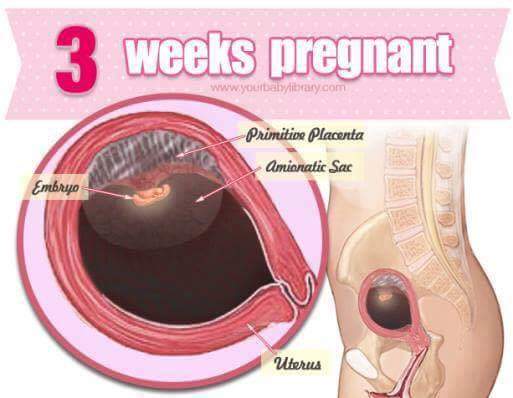 Gauze turundas impregnated with medicine are placed in the anterior nasal cavity for at least a day, and sometimes for 3-4 days, the medicinal impregnation is refreshed every day. This procedure is performed in a hospital, and until the bleeding stops and for some time after the woman is under the supervision of doctors. In difficult cases, a posterior tamponade is also performed, which is longer.
Gauze turundas impregnated with medicine are placed in the anterior nasal cavity for at least a day, and sometimes for 3-4 days, the medicinal impregnation is refreshed every day. This procedure is performed in a hospital, and until the bleeding stops and for some time after the woman is under the supervision of doctors. In difficult cases, a posterior tamponade is also performed, which is longer.
Do not tilt your head back and lie down on your back during nosebleeds, you can choke on blood, and its entry into the stomach is fraught with bloody vomiting. You should not blow your nose either, this will only aggravate the situation, the blood will flow even more intensely.
Possible treatment regimens
How to treat a pregnant woman who has frequent or occasional nosebleeds? With regular nosebleeds, a pregnant woman should be examined to determine their cause, in accordance with which treatment is prescribed.
- If bleeding is due to serious causes - hypertension and other diseases associated with increased pressure, diseases of the nose, leading to damage to large blood vessels, decreased blood clotting, treatment of the underlying disease is prescribed.
 As a rule, it is carried out in a hospital setting.
As a rule, it is carried out in a hospital setting. - If epistaxis develops against the background of runny nose (rhinitis) , the underlying disease is being treated, and the doctor must prescribe medications, some drugs for the common cold during pregnancy are contraindicated. Drops and sprays should not dry out the mucous membrane, otherwise the risk of bleeding increases. To facilitate the removal of dried crusts after a runny nose and prevent injury to the mucous membrane, it is recommended to put tampons with vaseline oil in the nose.
- If the cause is hypersensitivity of the mucosa and thinning of the vascular walls , prescribe vitamin-mineral complexes that regulate tissue metabolism and strengthen blood vessels, as well as having an antioxidant effect. It:
- Askorutin - a drug to reduce vascular permeability, is also effective in the complex treatment of the common cold.
- Aevit - a complex of vitamins that enhances immunity, promotes tissue regeneration, renewal of epithelial cells.
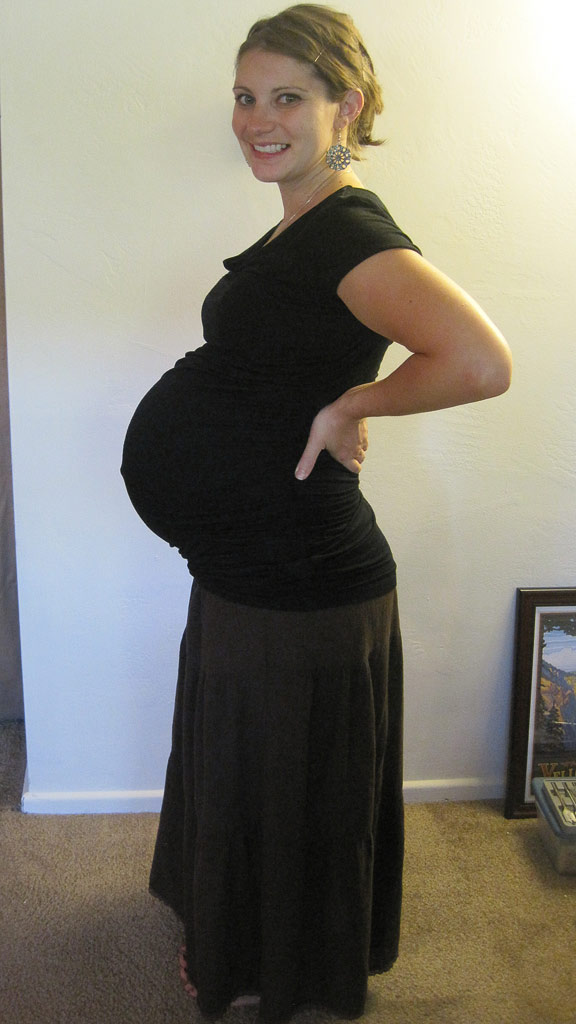
- Calcium preparations .
- Vitamin K .
Preventive measures are also important:
- drink plenty of fluids;
- maintain optimal temperature and humidity in the room;
- walk more often in the fresh air;
- clean the nose with care.
Nosebleeds are often a nuisance to expectant mothers throughout pregnancy, but resolve on their own shortly after delivery. Often this phenomenon is explained by changes occurring in the body, is not dangerous and is not a cause for concern, but nosebleeds can also be a sign of serious disorders - high blood pressure, reduced blood clotting.
Elena Malysheva will tell about nosebleeds in the video below.
Therefore, it is better to report them to a doctor who can assess the degree of danger. Usually, nosebleeds are easy enough to stop at home, and the prevention of beriberi, a healthy lifestyle, and nasal hygiene will help prevent relapses.
Why does nose bleed during pregnancy?
Pregnancy and childbirth
- Photo
- Pixel-Shot — stock.adobe.com
Why does my nose bleed during pregnancy?
When carrying a child, the hormonal background in a woman's body changes. This leads to increased blood flow, causing the blood vessels to fill with blood. The nasal mucosa becomes sensitive, and the capillaries become brittle. Even blowing your nose can cause nosebleeds.
Nosebleeds during pregnancy also occur for other reasons:
- Poor blood clotting. This is a dangerous violation, especially during childbirth.
- Pressure increase. Headache and dizziness appear. This condition is dangerous for the health of the baby, because the blood circulation of the placenta is disturbed.
- Deficiency of calcium or vitamin K.
 These substances strengthen the walls of blood vessels and prevent their rupture.
These substances strengthen the walls of blood vessels and prevent their rupture. - Injuries to the nose.
- Deviated septum.
- Temperature above 38°C that persists for a long time.
Any of these problems should not go unnoticed.
- Photo
- WavebreakMediaMicro — stock.adobe.com
What should I do if my nose bleeds during pregnancy?
See your doctor on time to prevent bleeding. With a deficiency of vitamins, drink vitamin complexes. Make sure that the nasal mucosa does not dry out, especially during a runny nose. Use humidifiers. Avoid inhalation of irritants and harmful substances. Ventilate the apartment and drink plenty of fluids.
If nosebleeds occur, proceed as follows:
- Sit down and tilt your head back.
- Put something cold on the bridge of your nose, preferably ice.


